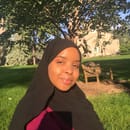How to survive Anatomy and physiology: the most dreaded class facing healthcare students everywhere. A&P is not like any other class where skimming over lecture notes will suffice during the exam. This class makes you study harder than any other class you’ve ever taken since it has a practical section as well. For our non-healthcare related readers, A&P has two types of exams: a regular lecture exam consisting of mainly multiple choice and a lab practical where students must identify body parts in a real or model animal. This class is excruciating, and a lot of work. Over the past summer, I took A&P 1 in five weeks, then took A&P 2 in another five weeks and here is a list of suggestions I have in passing the class and NOT losing your mind.
Take it at a community college
Classes at a university are generally much harder than classes taken at a community college. I took my A&P courses at St. Paul Community and Technical College and I saved money and time by taking it over the summer. Community college classes have the same amount of credits and hours as universities, but the coursework is a lot less rigorous.
Make flashcards!
I cannot stress this enough! During the 10 weeks, I was in class, I used over 300 notecards. Writing down the information in smaller units helps your brain take in the information and recall it during an exam quicker. For the lecture exams, I suggest creating your own flashcards, but for the lab, since there is so much information to memorize, you can buy ready-made flashcards online.
Do, redo, then do the lab again!
Most A&P classes have an open lab time where students can come in and look over the lab material on their own. USE THIS TIME WISELY! More often than not, class time isn’t enough time to study for the practical especially if you are considering taking a summer class, so studying the lab material during this time is crucial.
Ask questions!
This may seem like obvious one, but the number of people I’ve seen who never ask questions in class and just assume information is staggering. Since A&P is a fast-paced, mostly self-taught course, it is extremely important to ask your instructor to clarify anything you have questions especially when it comes to the lab practical.
Quizlet = lifesaver
Quizlet may be the only lifeline some of us may have because of its list of different quizzes you can take as practice. A&P is one of the subjects that have the largest variety of quizzes from all the chapters in the textbook. Going through the chapters and quizzing yourself will most definitely raise your score on the next exam.
Study!
Now that you have some resources on where to study now it’s time to actually study. Make a schedule that you know is reasonable. My suggestion is taking 1 hour to 2 hours a day four days a week if it is a semester-long class, but if it is a summer class, you may need up to 5 hours a day to get through all the material. Make sure you turn off your devices and solely focus on the material you are studying for so your attention can be on it completely. Study with friends and classmates because if you don’t know the answer to a question, your study partner might. Quizzing each other can also help foster more memorization of important materials.
Relax!!!!
The most important point: relax! Don’t forget yourself and your personal care when the only thing on your mind is this class. Trust me, if you are considering taking this course in the summer, the biggest piece of advice I have for you is to take time to just breathe. I forgot this major aspect and spent my time losing sleep, weight and myself. After A&P 1, I knew there was something I was missing and for A&P 2 I spent almost as much time relaxing as I did studying and the results were much better.
Yes, A&P may seem like the death of us, but it is totally manageable! *fighting*
*all images are from www.pixabay.com



